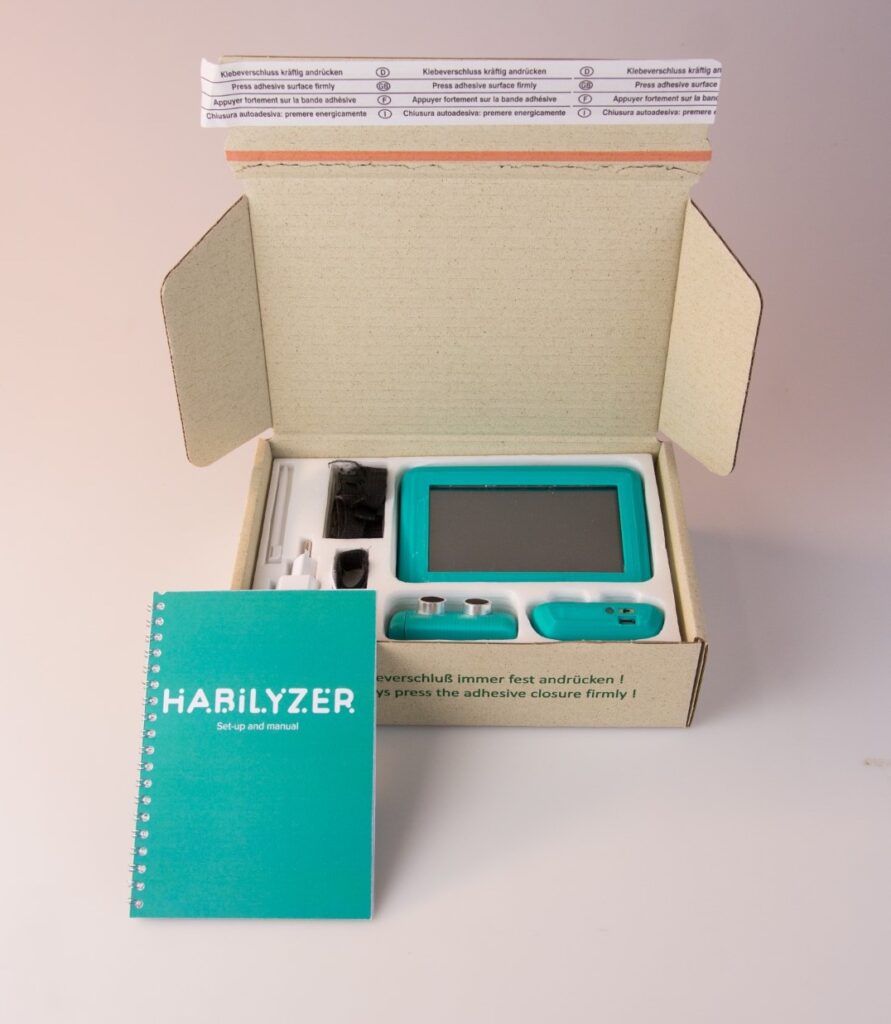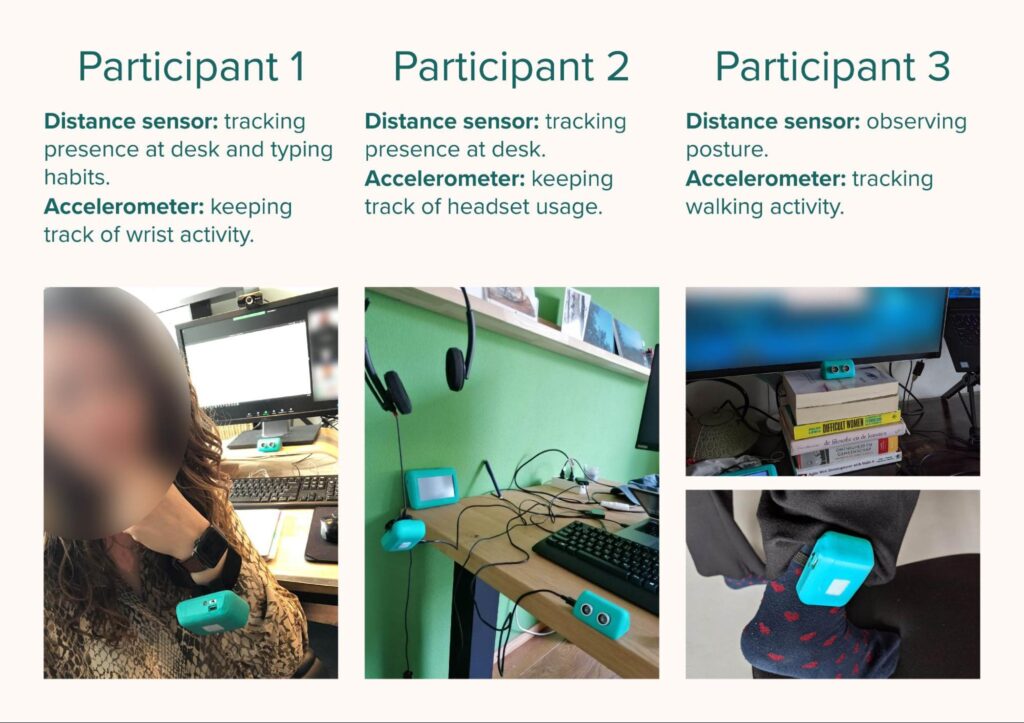Hello everyone! We are very excited to to have Tjeu van Bussel showcase his recent CHI 2022 Late-Breaking Work (LBW) with us, titled “Habilyzer: Empowering Office Workers to Investigate Their Working Habits Using an Open-Ended Sensor Kit“.
[Reading time: 4 min.]

Lead author’s name:
Citation:
van Bussel, T., van den Heuvel, R., & Lallemand, C. (2022). Habilyzer: Empowering Office Workers to Investigate Their Working Habits Using an Open-Ended Sensor Kit. Extended Abstracts of the 2022 CHI Conference on Human Factors in Computing Systems. https://doi.org/10.1145/3491101.3519849
TL;DR (if you had to describe this work in one sentence, what would you tell someone?):
Habilyzer is an open-ended sensor kit for office workers to investigate their working habits, which may help to improve workplace vitality.
What problem is this research addressing, and why does it matter?
Office work presents health and wellbeing challenges, triggered by unhealthy working habits. There is a trend towards technological health interventions for office workers, but they often have a narrow use case – focusing on solving a single problem without many options for the users to personalize the intervention.
How did you approach this problem?
What if we empowered office workers to research their own working habits? Habilyzer is a set of open-ended sensors which facilitate curiosity-driven inquiry into working habits (see Figure 1 below). The sensors can be deployed freely, driven by the interests of the user. Besides two wireless sensors, Habilyzer contains an instruction booklet and a base station to display and explore gathered data. To assess the efficacy of Habilyzer in triggering curiosity on working habits and a researcher mindset in office workers, we conducted two complementary studies: an in-situ deployment of the sensors, followed by an online study assessing potential inquiry questions into working habits.

What were your key findings?
Most participants (7 / 9) investigated a habit related to bad posture or sedentary behavior; examples of sensor use shown in Figure 2 below. Though the participants did not gain many new insights into their habits at this stage, all 3 participants of Study 1 saw value in a product like Habilyzer. The kit triggered curiosity in participants into their working habits and tended to support a deeper layer of reflection beyond simple awareness of a habit – as well as reflections on the (in)efficacy of current vitality interventions. This publication describes a work-in-progress, with a second version of Habilyzer currently deployed.

What is the main message you’d like people to take away?
Rather than providing office workers with ready-made vitality solutions, this research investigated how a kit containing sensors with an ambiguous use case could spur people to approach office vitality with an open mind. Enabling office workers to creatively set up their own research could be effective in creating ownership over their habits.
Any further reading you recommend?
- Gaver, W. W., Beaver, J., & Benford, S. (2003). Ambiguity as a Resource for Design. Proceedings of the SIGCHI Conference on Human Factors in Computing Systems, 233–240. https://doi.org/10.1145/642611.642653
- Continued work on Habilyzer:
van den Heuvel, R., van Bussel, T., & Lallemand, C. (2022). Habilyzer: A User-Driven Open-Ended Sensor Kit for Office Workers. Extended Abstracts of the 2022 CHI Conference on Human Factors in Computing Systems. https://doi.org/10.1145/3491101.3519884 - Interested in participating in the Habilyzer project? See: https://habilyzer.com/
Your biography
I recently graduated from my masters’ degree of Industrial Design at Eindhoven University of Technology, with a specialization in Constructive Design Research. At this moment I’m starting my career in the design field as a designer/researcher. I have a keen interest in empowering reflections on societal challenges through situated (technological) interventions which embrace ambiguity – like how Habilyzer empowers office workers to become the researchers of their own working habits. At this moment I’m at the start of my career, taking on some projects. I’m open to new projects or positions in roles relating to design research or creative technologist!
See Tjeu’s portfolio website for contact info and other recent projects: https://tjeu.studio
CHI NL Read takes place around once a month, where board members Lisa and Abdo invite a member of CHI NL to showcase a recent research paper they published to the wider SIGCHI community and world 🌍. One of the ideas of CHI NL Read is to make research a bit more accessible to those outside of academic HCI.

CHI Nederland (CHI NL) is celebrating its 25th year anniversary this year, and we have much in store to acknowledge this occasion. Stay tuned!
